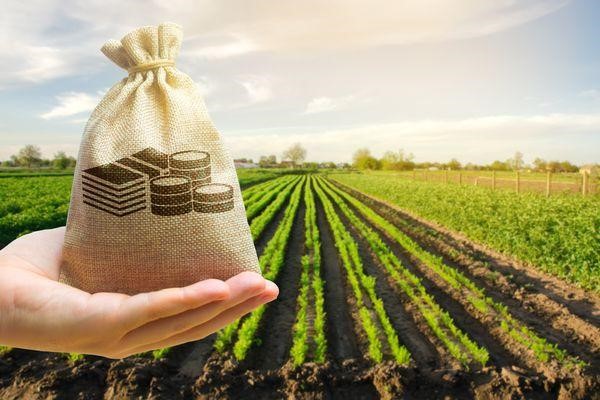Understanding Section 10(31) of the Income Tax Act: Tax Exemptions for Agricultural Subsidies
Agriculture plays a crucial role in India’s economy, and the government provides various subsidies to support this sector. One such provision under the Income Tax Act is Section 10(31), which offers tax exemptions on subsidies received by assessees engaged in the business of growing and manufacturing certain agricultural commodities. This article delves into the specifics of Section 10(31), its applicability, and the benefits it offers to agricultural businesses.
Key Aspects of Section 10(31)
Scope and Applicability:
-
- Section 10(31) of the Income Tax Act applies to assessees involved in the business of growing and manufacturing rubber, coffee, cardamom, or any other commodity specified by the Central Government through a notification in the Official Gazette.
-
- This provision specifically targets subsidies received for the replantation, replacement, rejuvenation, or consolidation of areas used for the cultivation of these commodities.
Exemption Details:
-
- The amount of any subsidy received from or through the concerned Board under schemes for replantation or replacement of rubber plants, coffee plants, cardamom plants, or other notified plants, or for rejuvenation or consolidation of cultivation areas, is exempt from tax.
-
- This exemption helps reduce the financial burden on farmers and agricultural businesses, promoting the growth and sustainability of the agricultural sector.
Conditions for Claiming the Exemption:
-
- The assessee must provide a certificate from the concerned Board detailing the amount of subsidy received during the previous year.
-
- This certificate must be submitted along with the return of income for the relevant assessment year or within a further time frame allowed by the Assessing Officer.
Definition of “Concerned Board”:
-
- For rubber, the Rubber Board constituted under Section 4 of the Rubber Act, 1947.
-
- For coffee, the Coffee Board constituted under Section 4 of the Coffee Act, 1942.
-
- For cardamom and other commodities, the respective Boards as notified by the Central Government.
Benefits of Section 10(31)
Financial Relief:
The exemption on subsidies helps reduce taxable income, providing financial relief to farmers and agricultural businesses.
Encouragement for Replantation and Rejuvenation:
By exempting subsidies for replantation and rejuvenation, the government encourages farmers to adopt sustainable agricultural practices and improve crop yields.
Support for Agricultural Growth:
The tax benefits under Section 10(31) support the overall growth and development of the agricultural sector, contributing to the country’s economic stability.
Enhancement of Crop Quality and Yield:
By focusing on replantation and rejuvenation, farmers can replace old or less productive plants with new, high-yield varieties, leading to better crop quality and higher yields.
Promotion of Sustainable Farming Practices:
Encouraging rejuvenation and consolidation of cultivation areas helps in maintaining soil fertility and ecological balance, promoting long-term sustainability of farming practices.

Example Scenario
Consider a coffee planter who receives a subsidy of Rs. 5 lakhs from the Coffee Board for replantation of coffee plants. Under Section 10(31), this subsidy amount is exempt from tax, provided the planter submits the required certificate from the Coffee Board along with their income tax return.
FAQ
1. What is Section 10(31) of the Income Tax Act?
Section 10(31) provides tax exemptions on subsidies received by assessees engaged in the business of growing and manufacturing rubber, coffee, cardamom, or other specified agricultural commodities.
2. Which commodities are covered under Section 10(31)?
This section covers rubber, coffee, cardamom, and any other commodity specified by the Central Government through a notification in the Official Gazette.
3. What types of subsidies are exempt under Section 10(31)?
Subsidies for replantation, replacement, rejuvenation, or consolidation of areas used for the cultivation of the specified commodities are exempt under this section.
4. What documentation is required to claim the exemption?
The assessee must provide a certificate from the concerned Board detailing the amount of subsidy received during the previous year. This certificate must be submitted with the income tax return or within a further time frame allowed by the Assessing Officer.
5. Who are the “concerned Boards” mentioned in Section 10(31)?
-
- For rubber, the Rubber Board constituted under Section 4 of the Rubber Act, 1947.
-
- For coffee, the Coffee Board constituted under Section 4 of the Coffee Act, 1942.
-
- For cardamom and other commodities, the respective Boards as notified by the Central Government.
6. How does this exemption benefit farmers and agricultural businesses?
The exemption reduces the taxable income of farmers and agricultural businesses, providing financial relief and encouraging sustainable agricultural practices.
7. Can subsidies for other crops also be exempted under this section?
Yes, if the Central Government specifies additional crops through a notification in the Official Gazette, subsidies for those crops can also be exempt under Section 10(31).
8. Is there a deadline for submitting the certificate from the concerned Board?
The certificate must be submitted along with the return of income for the relevant assessment year or within a further time frame allowed by the Assessing Officer.
Conclusion
Section 10(31) of the Income Tax Act is a significant provision that aids agricultural businesses by providing tax exemptions on subsidies for replantation, replacement, rejuvenation, or consolidation of cultivation areas. By reducing the financial burden on farmers and promoting sustainable practices, this section plays a vital role in supporting India’s agricultural sector.
For more detailed information on various sections of the Income Tax Act and other tax-saving tips, visit our Smart Tax Saver website.

Leave a Reply